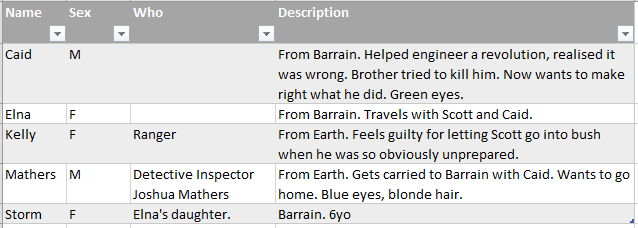How much would your writing change if, instead of typing or writing it, you dictated it?
As a teenager all the science fiction stories I read agreed on one thing. Computers of the future would be voice operated.
The personal computer is 30 years old now, and voice recognition has come a long way, but most of us still communicate with our computer via the keyboard and mouse.
I believe I can see the future of the mouse—replaced by touch screens—but what about the keyboard? Will it ever be replaced by voice?
According to the Writer’s Blog, novelist Richard Powers claims to have dropped the keyboard in favour of dictating his novels into voice recognition software. (Original link from Lorelle on WordPress.)
Voice recognition is not without its problems, though.
I recall, during last November, Future Boy decided to try voice recognition to write his NaNoWriMo novel. I don’t know how he went.
The technology has certainly improved enough to make voice activated writing possible, but what about us? Do we actually want it?
I remember the work it took to train myself to type words straight onto the computer, rather than writing them on paper first, and then transcribing them. Even though I was a touch typist, and used to the PC from my coding days, it took months to train myself.
In the end I succeeded. So much so that now I find it more difficult to write longhand.
Will the same happen for voice recognition text?
I honestly don’t know.
As we writers know from our writing, people don’t speak in real life the way they do in books. I definitely don’t write like I speak.
I repeat myself when I talk. I use ‘um’ and ‘ah’ a lot. I waffle. I definitely cannot ‘tell’ a story anywhere near as well as I can write one. Other people I know, who can tell beautiful stories, can’t write them.
Most people can become competent at something with practise. Toastmasters is the perfect example of this. You may not be the world’s greatest speaker by the time you finish their sessions, but you will certainly be a better speaker than you were when you started.
Training is the same. I am a competent trainer, because I run regular training courses. I am not a ‘good’ trainer, though, in the way that someone with natural teaching skills is.
I suspect voice activated writing would be the same.
When, or if, voice activated input arrives in the mainstream, people will gradually switch over to it, the way we switched from pen-based writing to keyboard-based writing. It will take practise to get used to, but most of us will eventually become competent at it.
What might change, however, are the naturals at the top of the writing tree. Those who can ‘tell’ a good story, but not write it, will now have a natural advantage over those of us who can write a good story but not tell it.

